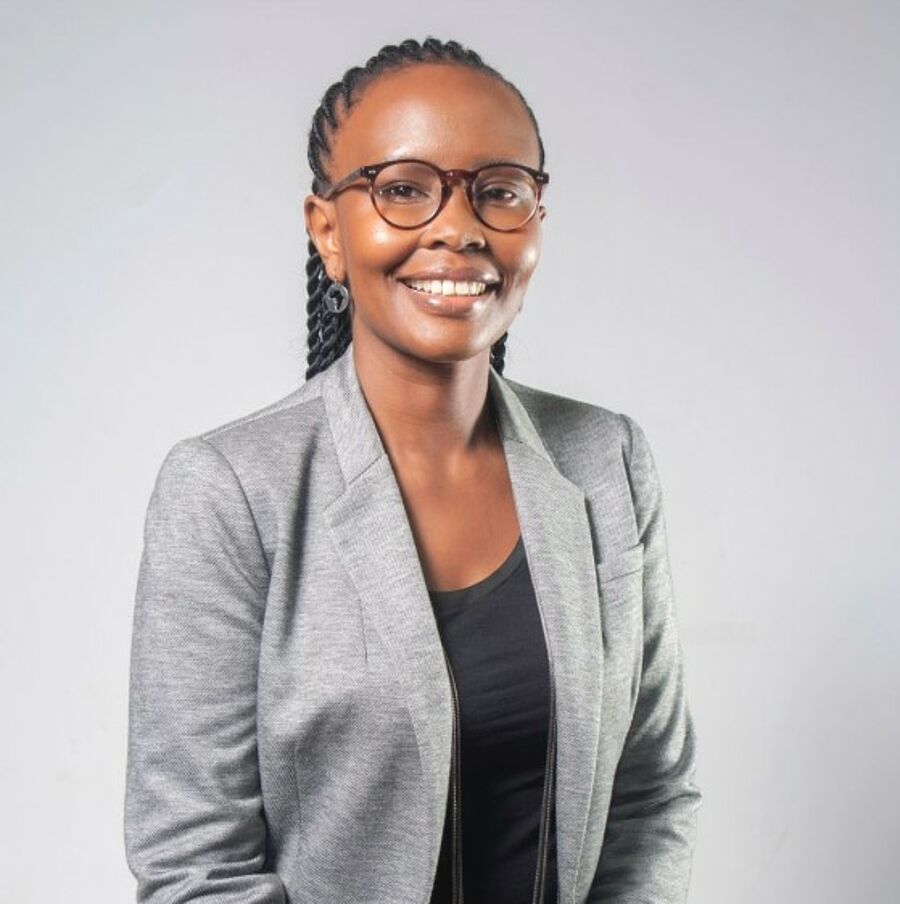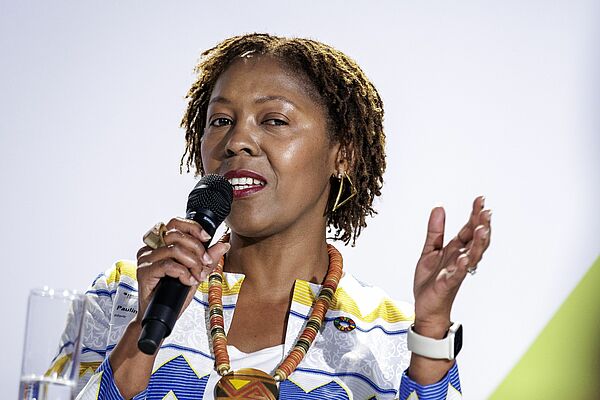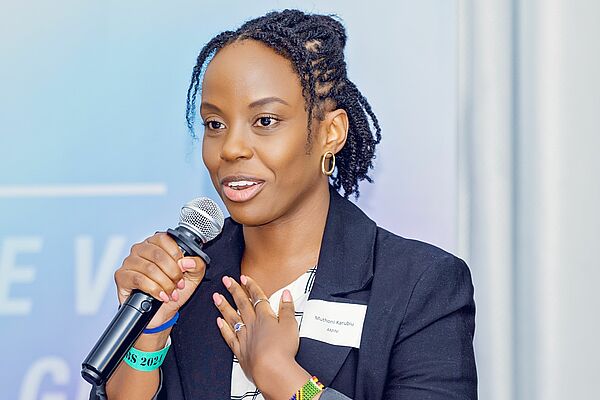“Positive impact and business success are not contradictions”

This year’s Hamburg Sustainability Conference (HSC) places a critical question at the heart of its agenda: What should a resilient and sustainable financial and economic system look like in an increasingly multipolar world? In this interview, Juliana Rotich – a member of the HSC Council and a FinTech entrepreneur from Kenya – speaks about the value of international cooperation in an era of geopolitical uncertainty, and how entrepreneurial thinking and the UN’s Sustainable Development Goals (SDGs) go hand in hand.
Interviewer: Ms Rotich, as Vice Chair of the HSC Council, you’ve played a leading role in organising the second edition of the Hamburg Sustainability Conference. Why should German businesses make space for the HSC in their calendars?
Juliana Rotich: Now more than ever, companies need fresh international growth perspectives and global networks. Forums like the HSC offer exactly that: a platform to meet entrepreneurs from all over the world – dynamic personalities who are truly making a difference in their regions. Take Africa, for instance – the continent is on the rise economically. That’s why German businesses and investors must include the continent in their vision of future growth markets. The HSC provides new global perspectives, valuable contacts, and investment opportunities – all right on your doorstep in beautiful Hamburg.
Orientation towards social impact strengthens the company
Interviewer: Many business leaders have recognised this opportunity and are attending the HSC this year. What topics are currently top of mind for them when it comes to international cooperation and the SDGs?
Juliana Rotich: In my conversations with entrepreneurs from across the globe, one thing is clear: the idea that profitability and sustainability are mutually exclusive is outdated. More and more businesses understand that aligning with the SDGs isn’t just the right thing to do – it’s smart business. A long-term view that incorporates social impact ultimately strengthens a company’s own position, especially in global markets. Events like the HSC provide a unique opportunity to connect with like-minded businesses and learn how sustainable business models are thriving in other countries and emerging markets.
Interviewer: Do you have a specific example?
Juliana Rotich: Yes, from my home country: Kenya. M-Pesa is a mobile money service that requires nothing more than a phone. Developed by telecoms provider Safaricom, where I worked, it allows people to store, send and receive money via mobile, without needing a bank account. That means financial participation becomes possible for people who don’t have savings or formal banking access – whether they’re buying shoes for a job interview or school supplies for their children. At the same time, Safaricom gains access to new markets and new customers. So here too, positive societal impact and business success go hand in hand.
Current focus topic: international financial architecture
Interviewer: The international financial architecture is one of the HSC’s central topics this year. Why is this issue so urgent right now?
Juliana Rotich: The global financial system is crucial in enabling investment in sustainable transformation – and in underpinning economic and social stability around the world. Yet current geopolitical tensions are making investors and businesses more cautious. That’s a problem. What we actually need are bold investments in innovation, sustainable infrastructure, and green industry. Access to capital and to secure, affordable financial services is essential. That’s why I personally campaign for greater financial inclusion, health and empowerment. It’s not just a moral imperative but a foundation for sustainable economic progress. Investments in digital public infrastructure are also crucial, as is constructive and adaptive regulation.
Interviewer: How would you describe the mood leading up to this year’s HSC?
Juliana Rotich: I would call it one of defiant optimism – a mood of “now more than ever.” When former international partners like the United States start drastically cutting aid, some may wonder whether international cooperation still has a place. But my answer is: absolutely. Climate change affects everyone. While some nations are turning away from reality and abandoning constructive dialogue, it’s up to the realists to step up and face our shared challenges. Just because some walk away from the table doesn’t mean the rest of us should stop working together. Quite the opposite: now more than ever, we must rally behind sustainability and the SDGs.
Interviewer: What gives you confidence that this spirit of “now more than ever” will prevail – especially when it comes to sustainable business?
Juliana Rotich: The benefits of international cooperation and sustainable business models are clear. The SDGs give us a shared roadmap – they provide the framework to align countries, organisations, and companies around common goals and shared values. If we turn our backs on them, what’s the alternative? I genuinely can’t think of anything more constructive or future-oriented than the SDGs for any entity that wants to build resilience and relevance in the coming decades.
Published on

